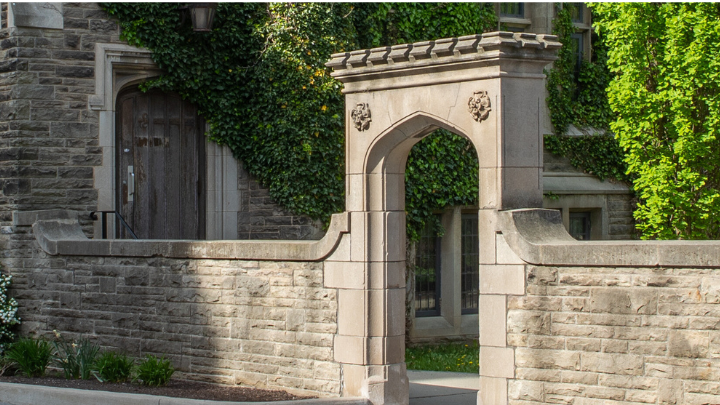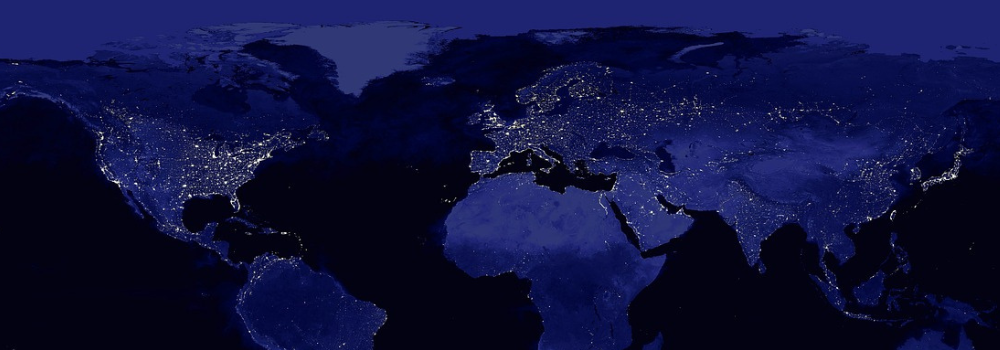PhD Political Science
Pursue Your PhD in Politics at McMaster University
The Department of Political Science at McMaster University offers a robust PhD program designed to cultivate the next generation of political scholars and leaders. Our program is structured around five substantive fields:
- Canadian Politics
- Comparative Politics
- Comparative Public Policy
- International Relations
- Political Theory
Information Box Group
Unique Learning Experience
Our graduate program stands out by providing a diverse range of seminars and rigorous training in research methodologies, theoretical frameworks, and critical analysis.
You will benefit from the expertise of our faculty members, who are methodologically diverse and dedicated to mentoring students in qualitative, quantitative, and mixed-method research.
Engage with Complex Political Questions
As a PhD student, you will engage with complex political questions and contribute original research that advances the field.
Our program prepares you for impactful careers in academia, public service, or policy advising.
Proven Success
McMaster’s vibrant doctoral program boasts a strong record of placing graduates in esteemed academic institutions, federal and provincial public services, and policy administrative positions.
Our alumni are making significant contributions to the field of politics and beyond.
Explore Our Fields of Study
Learn more about our five main fields of study below and discover how each area can shape your academic journey and career path.
Canadian Politics
The study of Canadian politics at McMaster University explores all facets of the Canadian political system, from the institutional and constitutional foundations of Canada to critical questions about Canadian political life. Our program focuses on core political institutions such as Parliament, political parties, the electoral system, federalism, and the courts. Additionally, students can explore key topics in Canadian politics, including Indigenous Politics & Indigenous-State Relations, Quebec Politics, Political Economy, Social Policy, the Politics of Migration and Citizenship, Regionalism, and the Politics of Gender, Race and Class.
We offer graduate instruction and supervision in many of the core foci of Canadian politics, including the central institutions of the Canadian state, law and public policy, Indigenous politics, political behaviour and public opinion, social policy and welfare state, and Canadian political economy.
Comparative Politics
Comparative Politics is the systematic study and comparison of diverse political systems, processes, and patterns in the world. As comparativists, we compare to draw attention to the similarities and differences to explain significant and big political changes and developments. The focus on research methodology is unique among other Political Science subfields.
At McMaster, our faculty members are passionate in mentoring and guiding students to adopt rigorous qualitative and quantitative research methods to answer big and meaningful questions. We offer graduate instruction and supervision in key topics such as democratization, authoritarianism, gender, human rights, electoral and party politics, ethnic minority representation and digital technology in regions such as Asia, Latin America, and North America.
Comparative Public Policy
McMaster is one of very few universities, in Canada and internationally, to offer a PhD major in Comparative Public Policy. To robustly examine and explain policy dynamics and change, students are trained in the comparative method and are required to examine a policy issue in at least two political jurisdictions. These jurisdictions may be states, but they could also be at the subnational or international level. Public policy addresses fundamental questions of “who gets what” and “who benefits”.
Our faculty has the capacity to supervise students engaged in mainstream policy studies, as well as projects employing various critical approaches to policy. We prepare students in the fields of theories and approaches to Comparative Public Policy, public administration, and the internationalization of public policy.
Explore our expert supervisors in Comparative Public Policy.
International Relations
McMaster has 14 full-time faculty members who specialize in teaching and conducting research in International Relations. Our PhD International Relations program’s strengths are in the fields of Canadian Foreign Policy, Critical International Relations Theory, Critical Security Studies, Global Governance, Global Political Economy, and Politics of the Global South. McMaster’s PhD is one of the strongest Critical International Relations programs in the country. Critical IR approaches reveal the unequal power relations of world order and seek to challenge those conditions. We draw on a wide variety of theoretical traditions including constructivist, ecological, feminist, historical materialist, post-colonial, and post-structural approaches.
Our faculty members have overlapping interests in alternative diplomacies, citizenship studies and transnational social movements, climate change, International Political Economy, International Relations Theory, Global Governance, post-colonialism, and Politics of the Global South.
Political Theory
Political Theory is the study of the philosophical foundations of political ideas, norms, practices, and institutions. It examines the nature of concepts such as power, the state, justice, equality, government, and civil society, and considers – from a critical standpoint – the ethical grounds of contemporary social and political life. Our faculty have particular expertise in critical theory, decolonial, postcolonial, and anticolonial political thought, theories of nationalism and collective identity, political founding and constituent power, political theories of race, gender, and empire, and critical theories of cosmopolitanism and international relations. We are happy to supervise doctoral projects in these and related areas.
We provide students with a strong foundation in historical and contemporary scholarship in Political Theory and focus on the development of core skills (critical thinking, analytical reasoning, writing, oral expression) and academic professionalization. We encourage collaboration with other subfields within and beyond Political Science and are supportive of interdisciplinary projects.
Program Information
Students are required to complete 18 units (6 half courses) of course work beyond the MA level.
Students will write comprehensive examinations in two fields – drawn from Canadian Politics, Comparative Politics, Comparative Public Policy, International Relations or Political Theory. Exams are written in August of their first year and December of their second year.
Students also fulfill a language requirement to demonstrate their competency in a language other than English which is relevant to their research. This is normally done before the approval of the thesis proposal.
The remainder of the program involves preparing a thesis proposal, and then completing and defending the dissertation.
A thesis proposal will normally be submitted in April of the student’s second year. The thesis should normally be no more than 60,000 words long, and it is expected that the thesis will be finished about two years after the proposal is approved.
Overall, then, full-time students are expected to take about four years to complete the program. Part-time students may take up to eight years to complete the degree but are encouraged to finish in less time.
Admission to the PhD program will normally require a Master’s degree in political science with an average of at least an A– (A minus).
Applicants are encouraged to contact faculty members in the Department of Political Science regarding potential supervision.
Required Application Documents
Graduate Studies Online Application
Applicants are required to complete the Graduate Studies Online Application which opens October 1st each year. In addition to the online application, applicants must also submit the required documents listed below. Most required documents must be submitted through the online application.
Statement of Interest
- An electronic statement of interest (approximately 500 words, single or double-spaced, maximum of 1 page).
- The statement must be uploaded as a PDF attachment only through the online application system.
- Your statement of interest is a crucial element of the application process. Canadian Politics applicants should describe the analytical problem or question about the Canadian political system that their dissertation will pursue. Comparative Politics applicants should emphasize the comparative elements of their project compared. Comparative Public Policy applicants should highlight the comparative nature of their research and policy area which concerns them. International Relations applicants should identify the international, transnational or global elements of their research projects. Political Theory applicants should identify the philosophical traditions, concepts, or figures that they wish to study at the doctoral level.
- All applicants would benefit from indicating particular faculty members that overlap with their projects.
CV/Personal Resume
- An electronic copy of your CV/Resume must be uploaded as a PDF attachment through the online application system.
Official Academic Transcripts
- Upload a scan of ALL official university transcripts completed to date to the application system. Remember to include a copy of the transcript key/legend or scale from the transcript.
- Transcripts from institutions where you completed courses on Letter of Permission and/or as part of a Student Exchange Program must also be included.
- If the official language of instruction at your institution is not English, please include both the original language document and a certified English translation.
- DO NOT submit an unofficial transcript or a student record prints.
- If you receive an offer of admission further instructions will be given on how to submit formal official transcripts.
Academic Reference
- Three (3) confidential e-reference reports from instructors most familiar with your academic work.
- All referees are required to complete the e-Reference.
- You will be required to include contact information and an email address for each referee.
- The electronic referencing system will send an e-Reference request on your behalf.
English Language Proficiency (if applicable)
- If English is not your native language, an official copy of your English Language Proficiency score or other evidence of competency in English is required. Such applicants are required to supply this evidence as part of your application. Applicants whose university studies were complete at an institution where English is deemed the official language of instruction may be exempted from this requirement (an official letter from the institution is required).
- The English Proficiency exam must have been completed within 2 years of the application due date.
- This requirement must be met prior to an offer of admission. There will be no exceptions to the language requirement.
- The most common evidence is a score on the International English Language Testing System (IELTS) or the Test of English as a Foreign Language (TOEFL).
- TOEFL: minimum score is 92 (iBT-internet based), 237 (computer based) or 580 (paper based). The McMaster University TOEFL/TSE Institution Code is 0936 and the Department Code for Political Science is 89.
- IELTS (Academic): minimum overall score is 6.5, with at least 5.5 in each section.
NOTE: International students wishing to enter Canada on a study permit should also contact the nearest Canadian Embassy or Consulate for further information.
Application Fee
The system will charge a non-refundable application fee. Please have a valid credit card ready to pay the application fee. The fee will not be refunded or waived. For further information regarding the application fee and payment, please see the SGS How to Apply page.
Application Deadline
January 14, 2025 (for September 2025 admission)
We do not offer a Winter (January) or Spring (May) start date.
Financial Information
The Department of Political Science at McMaster offers financial support for incoming PhD students. Funding is comprised of a graduate scholarship and teaching assistantship. The value and duration of funding are detailed in the terms of the letter of offer to the program.
Funding is awarded for academic excellence and the availability of these funds varies from year to year.
A separate application is not necessary, since all applicants for graduate studies at McMaster University are automatically considered. All funding is contingent on enrollment of the students.
Scholarships
Upon admission to McMaster, PhD students are expected to apply annually for external funding opportunities that may be available to them.
Internal Awards
Bursaries
Bursaries are granted on the basis of demonstrated financial need according to the principles of the Province of Ontario’s Student Access Guarantee. They are intended to supplement a student’s own financial contribution, parental assistance, government aid and personal loans/lines of credit to help the student to complete the academic year.
In order for students to be considered for any donor bursary, they must have completed a full time OSAP application or another provincial government student aid application, or a standard university need profile, and they must apply to the Graduate General Bursary through AwardSpring.
Academic Grants
Academic Grants are granted on the basis of academic excellence and demonstrated financial need as stated above.
Internal Scholarships (including travel awards)
Internal scholarships support students registered in a specific program or Faculty through the generous contributions of our benefactors and donors, and initiatives from the School of Graduate Studies. Selection is based on academic merit and/or research excellence. Students can apply for most of the internal scholarships through AwardSpring. A small number of scholarships don’t have applications as they are awarded by departmental nomination as per the terms of the award. It is critical that students consult with their departments regarding eligibility, application procedures and deadlines as each department will have its own process for internal review. Departments forward their recommendation to the School of Graduate Studies for final approval.
External Awards
External awards tenable at the University are given by federal and provincial government agencies and other private organizations that rely on McMaster University to recommend candidates, facilitate payments, and ensure compliance of terms and conditions of the award. Examples include Canadian Institute of Health Research (CIHR), the Natural Sciences and Engineering Research Council (NSERC), the Social Sciences and Humanities Research Council (SSHRC), and the Ontario Graduate Scholarships (OGS).
The application process for the majority of these awards is usually held one year in advance of receipt of the award (for example, competitions are held in the Fall for awards starting in September of the subsequent year). For further information on applications and eligibility requirements, please see the SGS Scholarships page.
Specific Political Science Awards
Below are examples of some awards currently available to enrolled Political Science graduate students. Eligible students apply through AwardSpring.
The Ellen Louks Fairclough Scholarship in Political Science
Established in 2005 to commemorate the life of The Right Honourable Ellen Louks Fairclough, PC, CC, FCA, LLLD, FRCGS, DH, UE, Canada’s first female cabinet minister and lifelong advocate for women’s rights. To be awarded to a student enrolled in a graduate program in political science. Preference will be given to a student with an interest in Canadian public policy.
The William Coleman Fund
The William Coleman Fund was established in 2011 by Dr. William Colemam. To support PhD students in the Department of Political Science who are conducting field research.
The Political Science Travel Grant
To support research and professional development by assisting graduate students with costs related to doing fieldwork or attending academic conferences. This grant is open to both MA (thesis option) and PhD students. There are two rounds of applications each year with the deadlines being October 15th and January 30th. Applications are submitted directly to the Department.
To see additional information regarding scholarships and awards, please visit the School of Graduate Scholarships page.
International Applicants
We are pleased to have applications from outside of Canada but please be aware that we have very limited funding for international students. As a result, admission is very competitive. All applicants are strongly encouraged to apply for awards or support from external private or public resources for which they may be eligible well in advance of applying for admission.
Quick Links

Graduate Supervisors Learn More
Find a graduate supervisor in your area of interest.

PhD Theses Archive Learn More
Explore the work of our scholars and see how their research is shaping the future of political science.

Graduate Courses Learn More
View our graduate courses and course descriptions.
Resources
Contact Us
Graduate Administrative Assistant
Manuela Dozzi
Kenneth Taylor Hall (KTH) 527
Phone: (905) 525-9140 ext. 24742
Email: dozzim@mcmaster.ca
Office Location
Department of Political Science
Kenneth Taylor Hall, 527
1280 Main Street West
Hamilton, Ontario, Canada
L8S 4M4
Office Hours
Monday to Friday
9:00 AM – 4:00 PM
Closed daily 12:00 PM – 1:00 PM
If possible, please send any inquiries via email.






